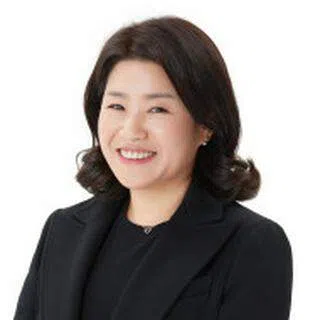[Big read] South Korea looks to Vietnam to reduce reliance on China
As China becomes more self-sufficient in producing its own goods, South Korea - one of China's major trading partners - has to look to other countries to reduce its reliance on the Chinese market. Given the growing economic and trade relations, as well as the flourishing people-to-people exchanges, Vietnam has become a top choice for South Korea to expand its market.
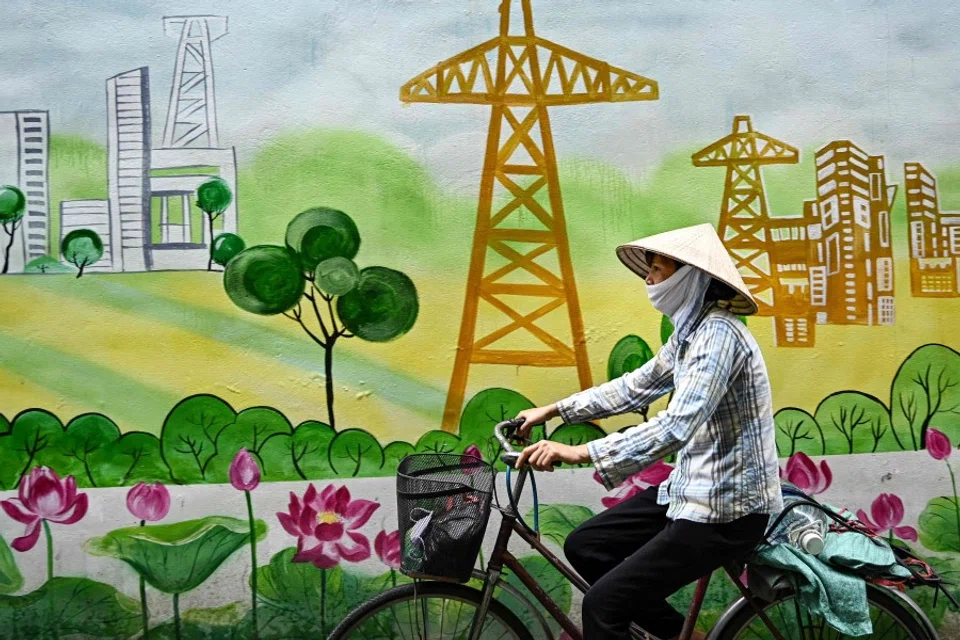
During a state visit to Vietnam on 22 to 24 June, South Korean President Yoon Suk-yeol led a delegation with 205 heads of leading South Korean companies. Evidently, South Korea places significant importance on its relationship with Vietnam as the delegation was larger than that of the 122 business giants that accompanied Yoon to the US in April.
Growing economic and trade partnership
During talks with Vietnamese President Vo Van Thuong, Yoon said that cooperation between South Korea and Vietnam is more important than ever, given the serious state of international affairs and complex global crises.
Yoon also pledged increased economic development assistance, and both countries agreed to accelerate their economic cooperation efforts, aiming for bilateral trade volume of US$150 billion by 2030. Both sides acknowledged that there is enormous potential for cooperation in developing Vietnam's rare-earth resources, and agreed to establish a key minerals supply chain centre to consolidate cooperation.
During the Korea-Vietnam Business Forum, Chey Tae-won, chair of SK Group and Korea Chamber of Commerce and Industry, said that due to geopolitical considerations, South Korean companies are seeking more stable and trustworthy partners, and Vietnam is the "optimal investment destination" due to its efficiency and stability.
There are currently around 180,000 South Koreans residing in Vietnam, making it the largest South Korean community in Southeast Asia
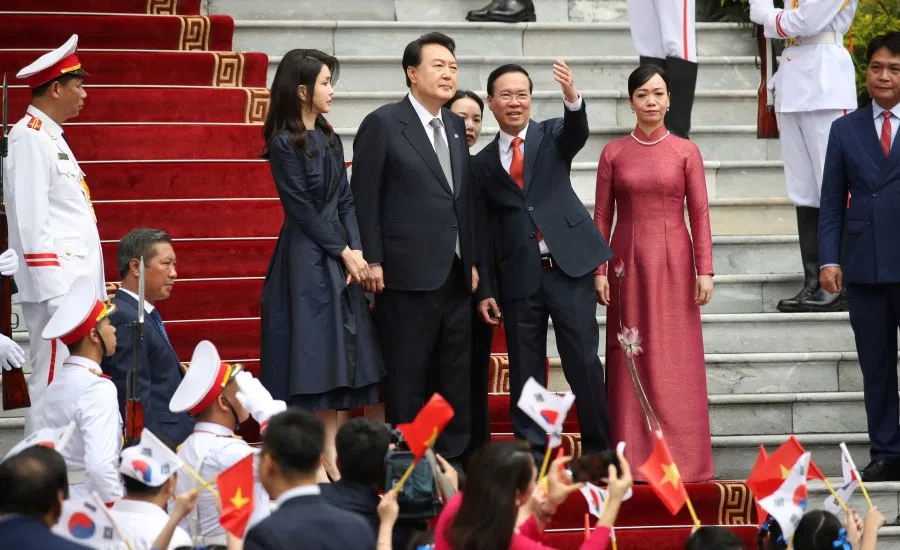
South Korea and Vietnam established diplomatic relations in 1992, with bilateral trade of just US$500 million at the time. The Vietnam-Korea Free Trade Agreement, which came into effect in 2015, accelerated their economic and trade relations. With the implementation of the New Southern Policy by former South Korean President Moon Jae-in in 2017, focusing on enhanced cooperation with the Association of Southeast Asian Nations (ASEAN) member states, Vietnam quickly became a major trading partner for South Korea.
Bilateral economic and trade ties between South Korea and Vietnam reached US$87.7 billion in 2022, growing 175 times over the course of 30 years. In 2022, Vietnam became South Korea's third largest trading partner, after China and the US. There are currently around 180,000 South Koreans residing in Vietnam, making it the largest South Korean community in Southeast Asia; conversely, around 240,000 Vietnamese people live in South Korea.
South Korea's trade surplus with Vietnam has also continued to grow, reaching an impressive US$34.2 billion in 2022, marking the first time Vietnam surpassed China as South Korea's largest trade surplus country.
South Korea is also Vietnam's largest source of foreign investment. As of 2022, South Korea has cumulatively invested US$81 billion in Vietnam, surpassing Singapore's US$70.8 billion.
To date, around 9,000 South Korean companies, including LG, Lotte, VinGroup and Hyundai, have created 700,000 jobs in Vietnam and account for 30% of Vietnam's total exports.
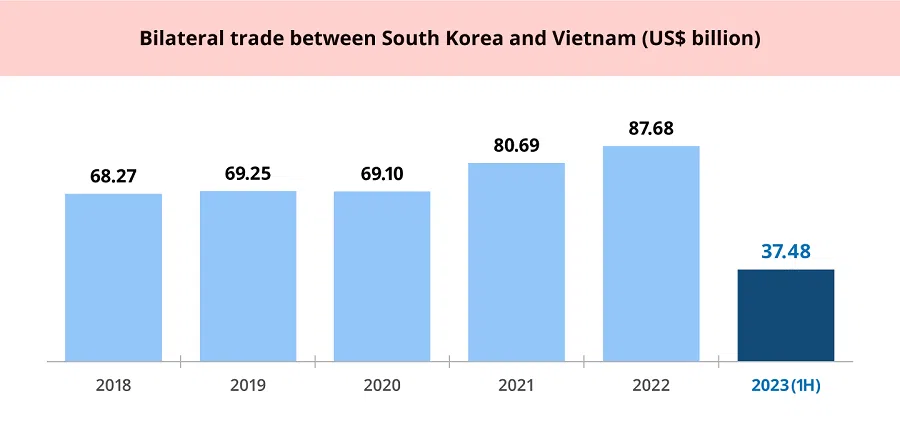
Since 2008, Samsung Electronics has been operating mobile phone manufacturing facilities in Bac Ninh and Thai Nguyen provinces in Vietnam, as well as household appliance factories in Ho Chi Minh City. More than half of the Samsung smartphones sold globally are produced in Vietnam. To date, around 9,000 South Korean companies, including LG, Lotte, VinGroup and Hyundai, have created 700,000 jobs in Vietnam and account for 30% of Vietnam's total exports.
A December 2022 report by the Korea Institute for Industrial Economics and Trade on evaluating the 30 years of South Korea-Vietnam diplomatic relations and new directions for cooperation, assessed that if strategic competition between China and the US escalates, countries might be forced to take sides.
It noted, "South Korea can join hands with ASEAN countries, including Vietnam, to collectively address such a situation. Vietnam holds great strategic value."
Emerging alternatives to China
Following Yoon's visit to Vietnam, the South Korean public has been debating the need to reduce economic dependence on China and consider Vietnam as a necessary alternative.
The Chosun Ilbo published an article titled "Vietnam Rises as an Alternative to Break Away from China", noting that after 30 years of diplomatic relations, South Korea and Vietnam have become an economic community, and Vietnam has become a core production base, major consumer market, and research and development hub after the China-US trade war and the pandemic. Multinational companies such as the US's Apple, Taiwan's Foxconn and Denmark's LEGO have moved their manufacturing bases to Vietnam in recent years.
The JoongAng Ilbo also said that "de-sinicisation" seems to be the trend, in order to avoid soaring Chinese labour costs and China-US competition.
... while the individual scale of these alternative markets may not match that of China, as a whole, their total export volume is comparable to China's...
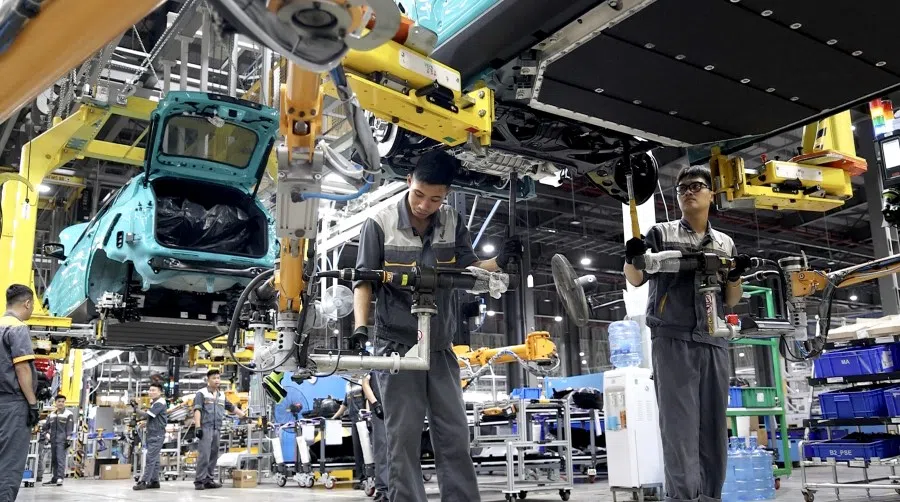
It also reported that South Korea's exports to China have declined for 13 consecutive months, and some people believe that now is the best time to reduce dependence on China, and Southeast Asian countries such as Vietnam are the markets South Korea needs to diversify its supply chain.
The Economist referred to these markets as "Altasia", or "alternative Asian supply chain". This new term encompasses 14 Asian countries and regions, including Japan, Taiwan, India, Vietnam and Singapore, which are considered upcoming alternatives to China. The Economist believes that while the individual scale of these alternative markets may not match that of China, as a whole, their total export volume is comparable to China's, and they have already begun competing with China in specific sectors.
The era of South Korea's export dividend to China ends
Kang Jun-young of the Department of Chinese Studies at Hankuk University of Foreign Studies told Lianhe Zaobao that reducing economic dependence on China has long been a concern for South Korea.
Kang said that 80% of South Korea's exports to China are intermediate products, of which around 30% are semiconductors. However, China has become much more self-sufficient in intermediate products, and is no longer reliant on imports from South Korea. Hence, South Korea needs to explore other markets such as Vietnam and Indonesia.
According to data from South Korea's Ministry of Trade, Industry and Energy, in the first half of this year, South Korea's trade deficit with China reached US$11.8 billion. However, in 2018, South Korea's trade surplus with China was as high as US$55.6 billion. In other words, in just five years, China has gone from being South Korea's largest trade surplus partner to its largest trade deficit partner.
"Frankly, the era of South Korea's export dividend to China is over. The Hyundai factory in Beijing used to import about 80% of its parts from South Korea, but now all the parts can be sourced in China." - Hyundai Motor employee
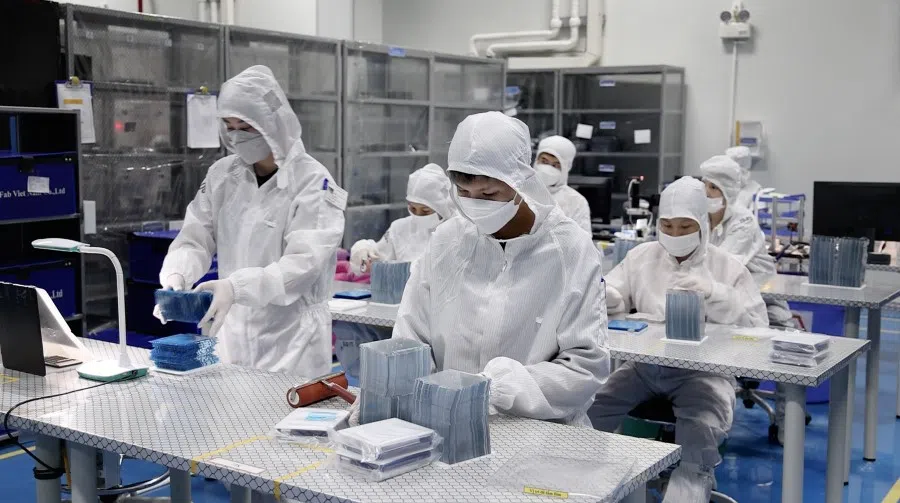
Seo Tae-yoon, professor at Yonsei University's Department of Economics, told Lianhe Zaobao that structural issues such as China's active development of cutting-edge technology, South Korea's declining industrial competitiveness, and changes in the global supply chain are happening simultaneously. Hence, South Korea's trade volume with China is likely to keep declining.
A Hyundai Motor employee who declined to be named said, "Frankly, the era of South Korea's export dividend to China is over. The Hyundai factory in Beijing used to import about 80% of its parts from South Korea, but now all the parts can be sourced in China.
"To make things worse, Chinese people are not buying cars from Hyundai. They are buying new energy cars produced in China or luxury cars imported from Germany. Hyundai Motor is in an awkward position in the Chinese market."
Vietnam's production base cannot fully replace China
To reduce reliance on the Chinese market, South Korea has been actively developing cooperation with Vietnam. Park Suk-jae, professor at Woosuk University and president of the Korea Trade Research Association, believes that the South Korean government has been quite successful in this regard.
Park told Lianhe Zaobao, "Vietnam is an important production base for South Korea to reduce its excessive reliance on China. It is also a key consumer market based on the younger generation's fondness for Korean culture. Evidently, the strategies adopted by the South Korean government and businesses for Vietnam, one of the major ASEAN economies, have been quite effective."
The Kyunghyang Shinmun reported that Chinese goods always had a competitive edge in terms of quality and price, which alternative supply chains can hardly outperform.
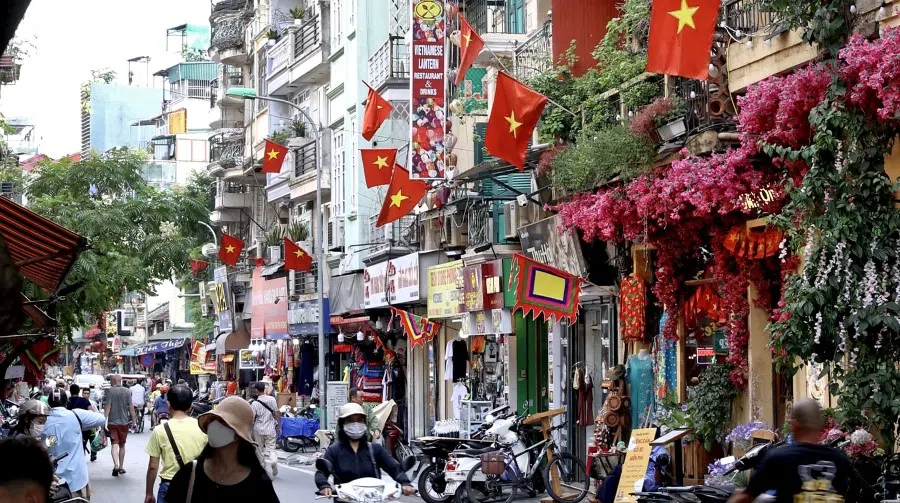
However, "Altasia" cannot completely take China's place for now. While China is less competitive than before, it still has a high-quality labour force and well-developed industrial infrastructure. Besides, China has the world's largest demand for semiconductors, making it impossible for South Korea to completely abandon it.
Quoting LG Economic Research Institute chief researcher Kim Hyung-joo, The Kyunghyang Shinmun reported that Chinese goods always had a competitive edge in terms of quality and price, which alternative supply chains can hardly outperform. Hence, what's important is not to fully remove dependence on China but to reduce it by half while seeking to diversify exports.
A commentary recently published in Munhwa Ilbo also stressed that it is impossible for China and South Korea to decouple in one fell swoop after 30 years of economic and trade relations. On the contrary, South Korea should seek to de-risk instead.
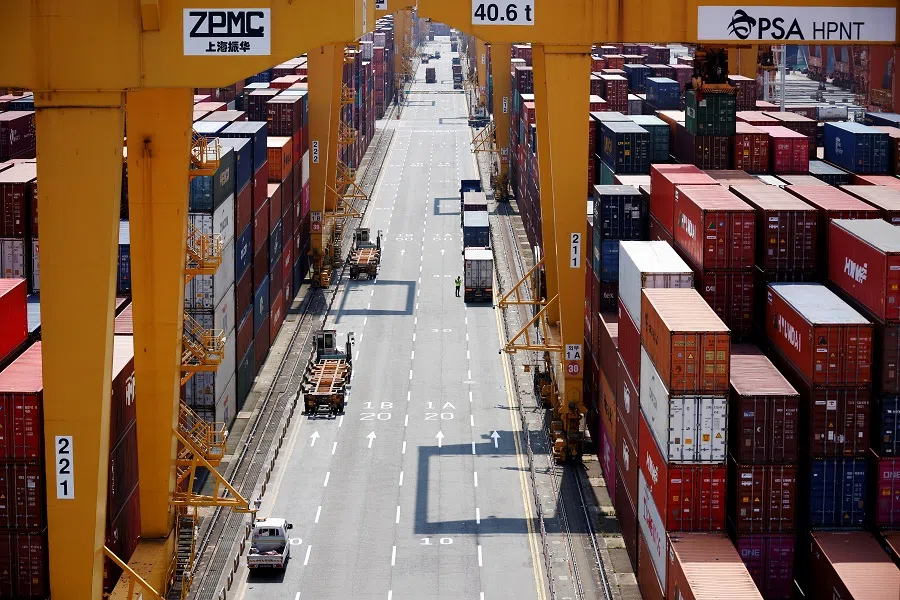
Nobel laureate and New York University economics professor Robert Engle told Maeil Business Newspaper on 2 July during his visit to South Korea that the restructuring of global supply chains will turn the situation around for South Korea. He explained that while South Korea's exports to China will decrease, the share of exports to the West will increase, reducing the country's dependence on China; faced with unprecedented challenges, the South Korean economy needs to seize new opportunities.
Vietnam the biggest source of international students in South Korea
Closer economic and trade cooperation between South Korea and Vietnam has also strengthened people-to-people exchanges between both countries. For the first time ever, Vietnam surpassed China to become the biggest source of international students in South Korea this year.
According to data from the Korea Immigration Service of the Ministry of Justice, there were 205,167 international students studying in South Korea as of the end of February 2023. Among them, the most number of students had come from Vietnam (70,212), followed by China (63,859), Uzbekistan and Mongolia.
On top of the increased efforts of Korean universities in attracting international students to cope with the shortage of new students as a result of the country's declining birth rate, the increase in the number of international students is also due to the Korean Wave (Hallyu) and the country's massive overseas investments.
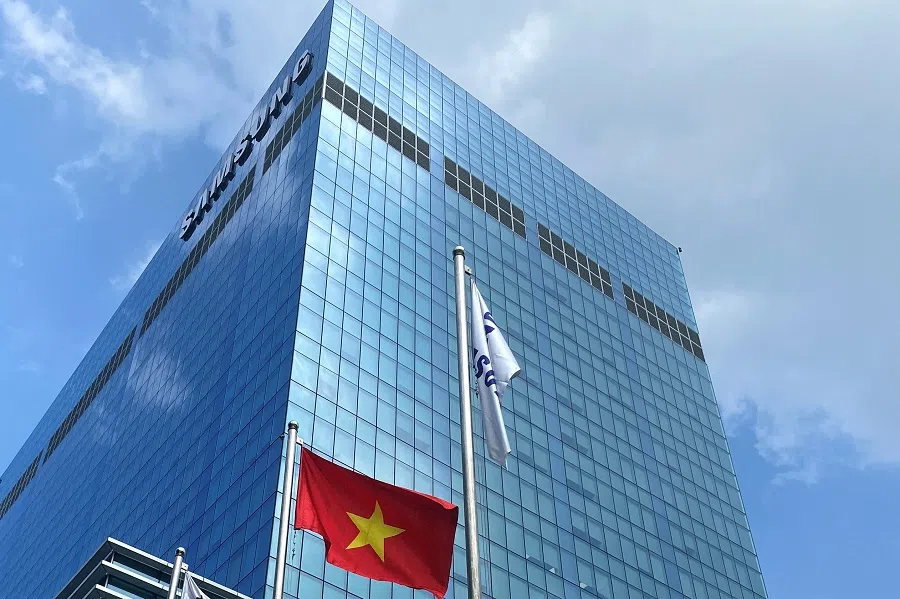
In the early 2000s, the Korean Wave led by Korean dramas and K-pop swept across Vietnam, fuelling a Korean language learning boom. Today, Vietnamese people are even more enthusiastic to learn Korean or study in Korea given the skyrocketing investments in Vietnam by massive South Korean enterprises such as Samsung and LG over the years, along with Korean firms offering Korean-proficient Vietnamese salaries that are two to three times higher than normal.
Some Korean universities have already started to organise study fairs in Vietnam, as well as campus tours for potential students and their parents.
Vietnamese student Tran Tu Ahn, 23, is in the third year of her business studies at Konkuk University in South Korea. Having arrived in Korea four years ago, Tran is familiar with Korean culture as she grew up watching Korean dramas with her mother. She later became a fan of popular South Korean boy band BTS when she was in high school and decided to further her studies in South Korea.
She said, "Vietnam national football team's former head coach Park Hang-seo is very popular among the Vietnamese. My grandpa and father, both avid football fans, even became fond of Korea because of him. So everyone was very supportive when I told them that I wanted to study in Korea."
... there are many Vietnamese youths who are passionate about Korean culture.
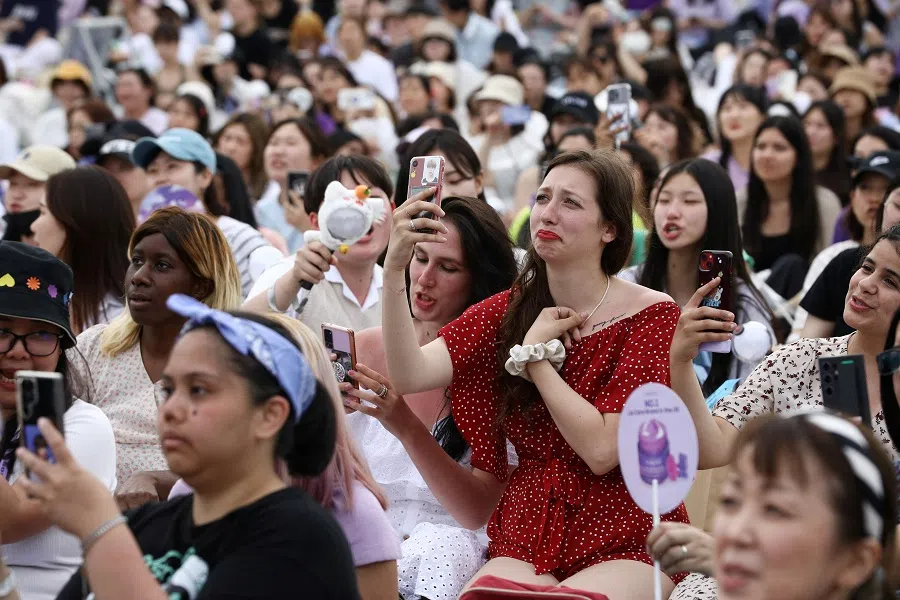
Tran said that nowadays there are many Vietnamese youths who are passionate about Korean culture. The Facebook groups "Korea, wait for me, I'm coming" and "Korea, wait for me" were formed by Vietnamese youths and have a whopping 443,000 and 210,000 members respectively.
She said, "After Korean enterprises such as Samsung and LG entered Vietnam, a Vietnamese employee who is able to speak Korean will earn at least two times more than the average Vietnamese. For example, the average salary of a Vietnamese graduate is around 6 to 8 million dong (roughly US$252-337). But if they can speak Korean, they can easily earn between 15 and 20 million dong."
Tran added that after she graduates, she plans to "work in Korea to gain some experience before returning to Hanoi to work at the embassy or Lotte Group".
Although the cost of living in Seoul is higher than in Hanoi, Tran finds it manageable because of the relatively high hourly wage. She shared, "I can earn an hourly wage of 10,000 won (US$7.50) in Seoul and that is enough to buy myself a cup of coffee. That won't be the case if I was working in Vietnam. So as long as I have a job, I will be able to survive in Seoul."
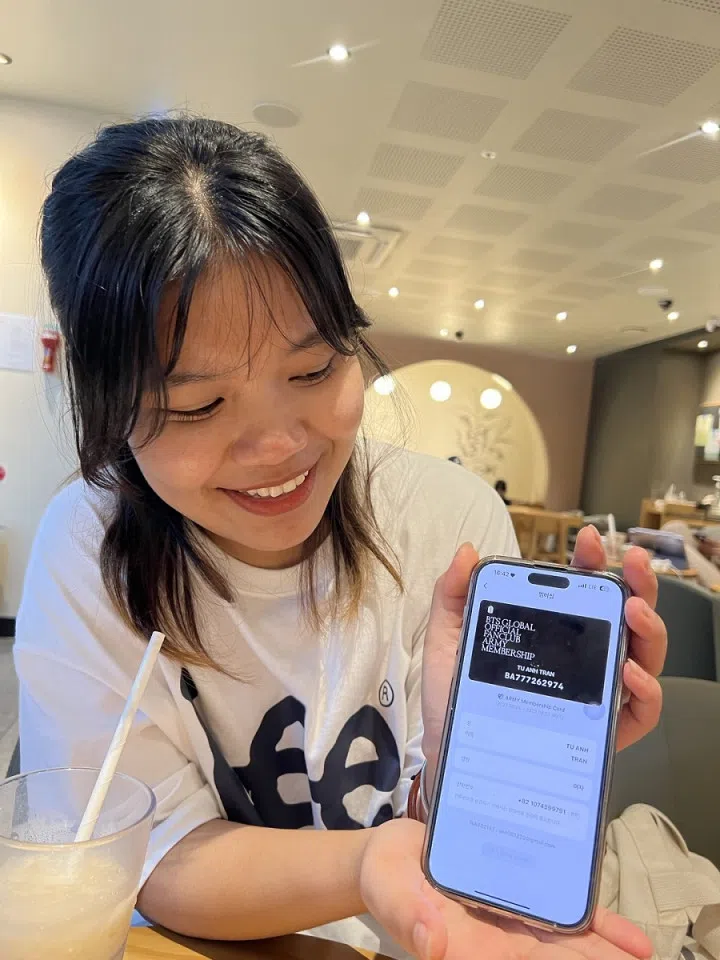
She pulled out a BTS fanclub membership card from her bag and chuckled, "Although my parents are paying for my university tuition fee, I have to earn my own living. I don't spend a lot on food because I either eat at home or at the restaurant where I work, but I spend an average of 200,000 won on BTS concert tickets or merchandise every month, so I have to save up."
Better opportunities for Korean-proficient Vietnamese
Vietnamese student Le Quynh Hoa, 20, arrived at the University of Seoul in February this year to study Korean. Her choice to study in South Korea is not influenced by a celebrity that she likes, but she hopes to work at a Korean enterprise or become a Korean teacher when she returns to Vietnam.
She said, "My mother is a Korean translator while my cousin is a graduate of Myongji University. Given their mastery of the Korean language, their careers have taken off after returning to Vietnam. That is what I'm striving for."
Le added, "My mother's friends have mostly retired, but because she is proficient in Korean, her skills are in demand so she can continue to work and even earn a higher salary. She is my role model."
Le's father is a university professor while her mother works at a Korean logistics company in Hanoi. Her parents spent a huge sum of money on her education agent and visa application when she decided to study in Seoul. In order to afford the high cost of living in Seoul, Le works and studies at the same time.
... there are now more than 50,000 people studying Korean in Vietnam, with nearly 60 colleges and universities offering Korean language programmes.
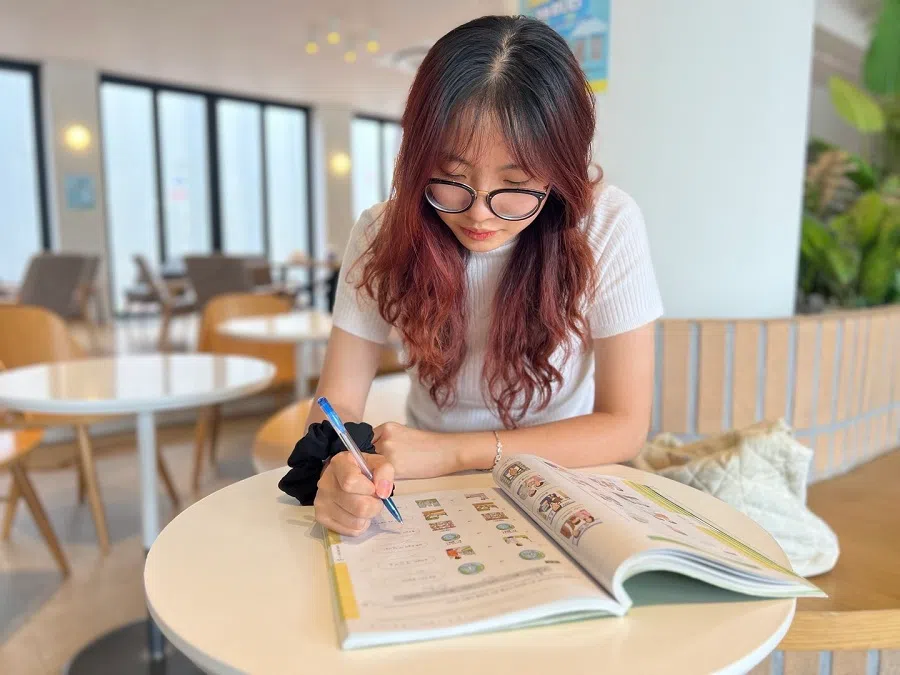
A top scorer at her college, Le said, "I have more time to work now since I'm only attending a beginner's Korean language course. So I'm saving up as much as I can to lighten the financial burden on my family, since I won't have that much time anymore once I start preparing to enter university."
Le's mother, Chu Thi Binh, 50, told Lianhe Zaobao that she was once a trainee at a textile company in Seoul 30 years ago, working hard to improve her life. "Vietnamese people love learning Korean. Anyone who can speak fluent Korean will be able to find a good job. I hope that my daughter will further her studies and earn a doctorate degree after she graduates from university in Korea. I hope she can teach Korean at a university in Vietnam when she returns," she said.
Apart from studying in Korea, there are also many Korean language schools and programmes in Vietnam. In 2021, Vietnam became the first country in the world to add Korean to its list of major foreign language elective courses, offering it from the third grade of elementary school. According to the Vietnam News Agency, there are now more than 50,000 people studying Korean in Vietnam, with nearly 60 colleges and universities offering Korean language programmes.
In Vietnam, the number of King Sejong Institutes, which are Korean language and culture education centres established by the South Korean government, increased from three in 2011 to 23, with a cumulative total of 580,000 students.
This article was first published in Lianhe Zaobao as "减少对华依赖 韩国聚焦越南市场".
